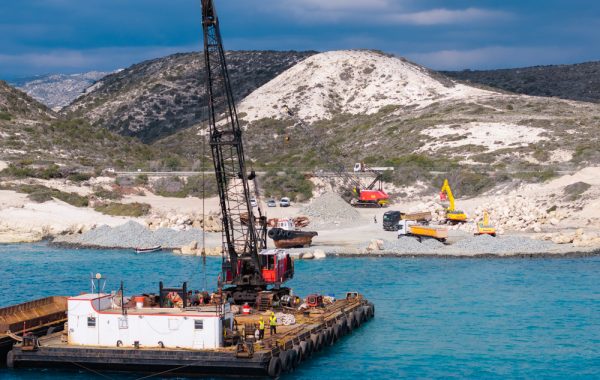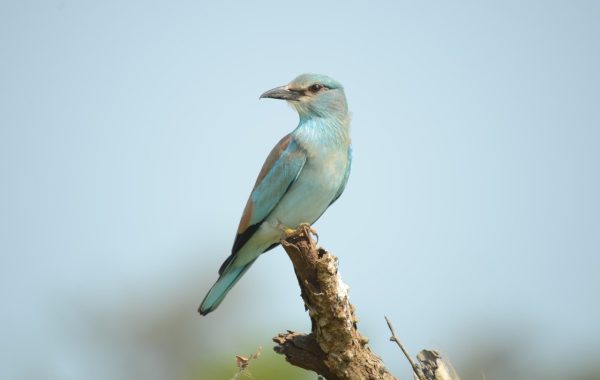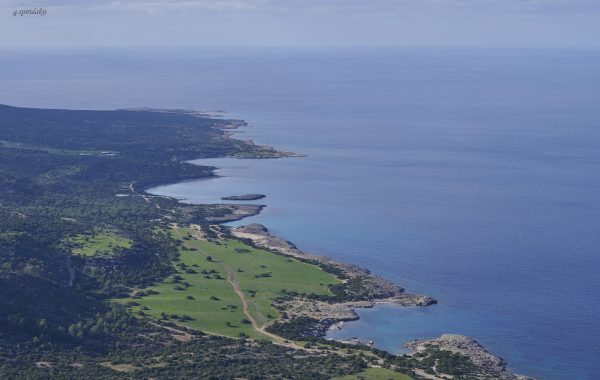Ever since the GYPAS project began in 2011, counts of the Cyprus Griffon Vultures have been taking place twice a year, in winter and in spring.
Vultures begin nesting from January, so the annual winter count is a great opportunity to begin to look for potential nests. Nowadays, the only reliable nesting site for the species is Episkopi Cliffs, although vultures used to nest on cliffs across the island, before their population crashed.

We set up our observation station early in the morning at Episkopi Cliffs and scanned with our telescopes to find around 12 vultures roosting on the cliff-face – probably about half the population. Then the messages from the other teams started coming in, letting us know they had each arrived at their look-out posts and were ready to begin the survey.

The first phone call really put a smile on our faces: colleagues from the Game and Fauna Service had spotted a pair of vultures mating on cliffs in the Pafos district. These birds, both individuals that were brought from Crete through the έργου ΓΥΠΑΣ, might even be the same pair that nested last year in an area where an important vulture colony used to exist in the past. Fingers crossed we will confirm this later in the year.
As the day wore on and the sun began heating up the air, the vultures at Episkopi Cliffs began to stretch their wings. Soon most of them had taken flight and were travelling inland to look for food. A few spent the day at Episkopi Cliffs and there were hopeful signs of one or two nests here as well. In total and across all observer teams, we recorded 17 vultures. It may be that we missed a few individuals (it’s surprising how well camouflaged they can be while roosting on cliffs), but even so, 17-20 vultures is a woefully low number. It is less than one tenth of the size we would expect a healthy Cyprus vulture population to be.
As long as the threats of poisoning and persecution continue, the future appears bleak for the vultures of Cyprus. As always we stand committed to combating these threats and working with the authorities to protect our vultures.
We thank our team of dedicated volunteers, the Game and Fauna Service and the SBA Environment Team, for dedicating their time once again to the vulture census.




